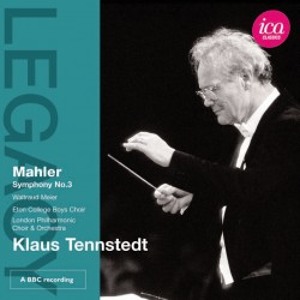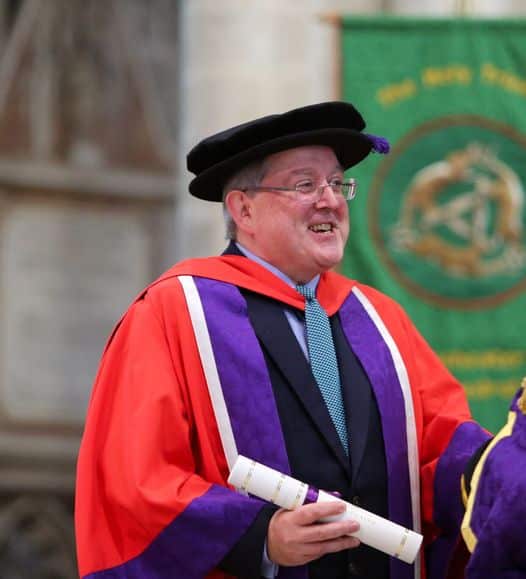Who was Carlos Kleiber's favourite Mahler conductor?
mainIn yesterday’s review of the new Carlos Kleiber biography-with-correspondence in the Wall Street Journal, I made passing reference to a conductor who caught Kleiber’s eye in the 1990s and aroused his unqualified respect.
Here’s what he had to say:
I don’t love Mahler, but this time I succumbed, thanks to Tenn. He is a most sympathetic conductor, never “clever” or perfunctory, never self-conscious, his love for the piece makes it irresistible (the piece), there are plenty daemonic ghosts around him (as there were around Gus Mahler), nerve, lilt and grit, body language sans exhibition, it’s all there, GENUINE, enough of it for other “eminences” to cut bug pieces off without diminishing Tenn’s funds.
In short: at last someone to admire! … I hate going overboard like this) (Corresponding with Carlos, page 211)
I so wish Inge were still alive to read this.






I enjoyed reading the review. It’s nice to read that Carlos loved Emily Dickinson. I truly can’t imagine life without her little gems, gems you can ponder diligently but only understand when your mind stops trying to pin them down, and thought slips in, unobtrusively filling in the quiet with what was already there.
Reportedly, Kleiber’s favorite Bruckner conductor was Günter Wand. That I can easily understand and fully relate to. Yet I am confused about Kleiber’s known admiration of Karajan. What is your take on that, Norman? Any insights from Barber’s book?
@ Petros: Kleiber had great respect for Karajan. From the best biography about Carlos Kleiber (Werner): Kleiber hatte angeblich so großen Respekt vor Karajan dass schon länger in Berlin gemunkelt wurde, Kleiber wolle dort zu Lebzeiten Karajans nicht dirigieren.
He liked and respected Karajan and was rather deferential towards him, according to Barber, seeing him as from an earlier generation. According to Michael Gielen, he viewed Karajan as the ‘only shark in a pond of carp’ – a powerful figure whom he could respect. (He also admired his sporting and athletic prowess, according to a former mistress.) He once attended Karajan’s rehearsals of Siegfried at Salzburg for fourteen days on the trot. He would often ask other conductors how Karajan could get the sounds he did from an orchestra, seeing it as a strange and mysterious thing, since he apparently added little interpretatively but would ‘play the notes’. Karajan, equally, admired Kleiber very much. When CK wanted to learn Elektra, he went to study it with Karajan. The latter later commented that he never learnt so much in four hours as he did with Kleiber, as Kleiber had actually taught him the entire score!
CK was flattered to be asked to succeed him in Berlin, received the deputation of players, but declined the offer politely ‘with whisky and cigarettes’, as Barber relates. He had been unimpressed by the orchestra’s treatment of the older men in the last few years, and wrote him a note of support to that effect.
Barber also relates that the other conductor who greatly admired Karajan was Reginald Goodall, holding that Kleiber was the only one to match him… I would take their (musical) judgements over NL’s on this one!
By the way, Norman is also responsible for an article published just after Kleiber’s death entitled: “Not a great conductor’… On the basis of recent polls and surveys, it seems the profession begs to differ.
If you read the article, Duncan, not just the headline, you will find a different set of criteria.
I will certainly concede that you wrote in that piece some positive things about Kleiber, including that he was ‘magnificently gifted’ but you seem to withhold the title great because he did not conduct a wider repertoire and/or more often. Whilst that is a cause for regret, I would simply say that quantity and quality are not the same thing, as you of all people have rightly been reminding us and the record industry over the years. He was versed in much music, but when able to do so (ie in later years) chose to conduct those with which he felt a particular affinity, or about which he had something to say that he felt others did not. Or that he had not got ‘right’ before, whatever. I don’t think one can see his rationale as cynical. And the market would bear it, of course, as he was always in massive demand.
I agree Duncan.
– Whatever Kleiber’s intentions, his limited activity inevitably limited his contribution. I agree with Norman’s point that “he gave very little.” But I do find the headline thought provoking but misleading, unless one carefully reads Norman’s set of criteria. I’d be more comfortable with something like “Supreme conductor with limited legacy”.
– Samuel and Duncan, thank you for your comments on Kleiber’s admiration of Karajan, which I still don’t understand at a rational level. Does it tell us more about Kleiber’s self doubt? To me Gielen’s story about Kleiber, Karajan and Electra is very revealing. Besides, Kleiber himself could draw from the VPO richer yet more transparent sonorities than Karajan, not to mention that he drew more incisive interpretations. (I had heard them both conduct the VPO live.)
– There is an unofficial release of Das Lied von der Erde conducted by Kleiber. I find it very good, though I don’t know the work and other great recordings well enough to have an informed judgment. Any other opinions?
Given this thread, you might be interested in this footage of Kleiber at work in the pit during act I of Rosenkavalier in Vienna in 1994. There are other examples on YouTube of him conducting at Bayreuth etc.
http://www.thrsw.com/archives/2011/12/vienna_rosenkavalier_act1_on_y.html#more
Sorry, but I think that criticizing Kleiber’s output as being scarce or him withholding himself from music is like saying that Arthur Rimbaud should have grown up (as if he could continue to write that way, which he couldn’t). If Arthur Rimbaud had “grown up”, he wouldn’t have left us with his marvelous adolescence with it’s irrepressible insolence, candor and sensuality. What Kleiber did was completely himself, and he really didn’t do it to create a personality cult…